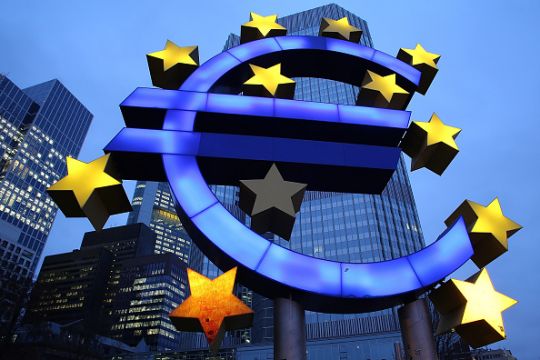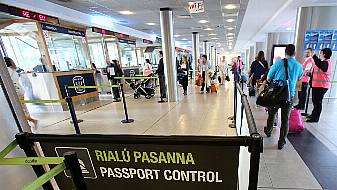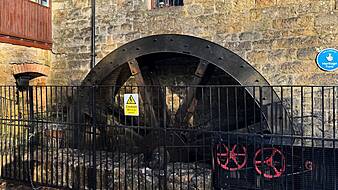Euro zone government bond yields drifted lower on Tuesday after the European Central Bank's chief economist said inflation was likely close to peaking and investors prepared for a raft of major central bank decisions.
Some of the world's most influential central banks hold their final policy meetings of the year next week and much of the market action over the past month has focused more around how little, rather than by how much, they might raise rates.
The ECB, the US Federal Reserve and the Bank of England all meet next week to discuss monetary policy and even though inflation is still flaring, investors are attaching a growing chance that the first two will raise rates by just half a point, rather than three quarters of a point.
"Starting December, it seems that markets are getting a bit more cautious and we have the big central banks meeting next week," said Pooja Kumra, senior European rates strategist at TD Securities.
Benchmark 10-year German Bunds were last yielding 1.864 per cent, down 1 basis point (bp) on the day, while the two-year Schatz yield edged up 1 bp to 2.123 per cent.
The gap between the two, known as the yield curve, is around 26 bps - its most negative in 30 years, having flipped below zero in early November.
Kumra said a 2 per cent yield on 10-year Bunds was "a bit too optimistic" given that the ECB will almost certainly give some kind of steer on how it plans to unload the longer-dated bonds on its balance sheet.
"We do like holding a short bias in Bunds from here and a steepening view on the curve," she said.
Peripheral euro zone debt got a slight lift after ECB chief economist Philip Lane told the Milano Finanza daily he believed the peak in inflation was probably close, although more rate hikes would be necessary to bring price pressures down.
Italian 10-year BTPs were flat on the day around 3.741 per cent, as were 10-year Spanish Bonos at 2.869 per cent.
Markets show investors widely expect a 50-bps rise in the ECB's 1.5 per cent deposit rate on December 15th before a string of further moves in 2023 that could carry the deposit rate to the vicinity of 3 per cent.
The ECB has already raised rates by a total of 200 bps this year.
"So far, only a minority has pushed for a 75 bp hike at the 15 December meeting, thus cementing expectations of a smaller 50 bp move. Instead, focus has been on the timing and size of its bond portfolio reduction (QT), with little noticeable market impact so far," ING strategists led by Padraig Garvey said.
"Indeed, 10-year Bund yields have rallied 50 bps since their October peak, and 10-year Italy has outperformed them by more than 60 bps," they said. -Reuters







